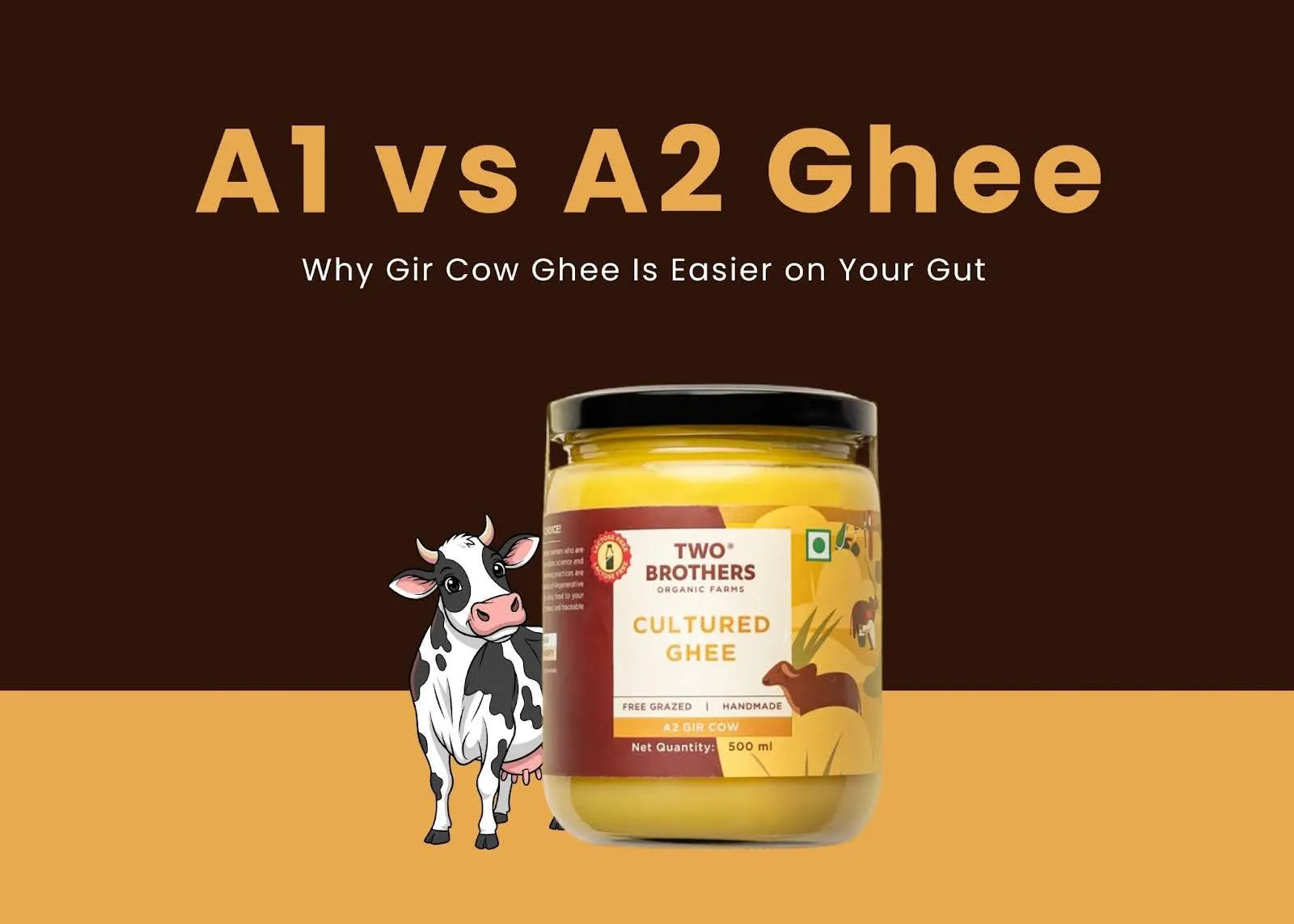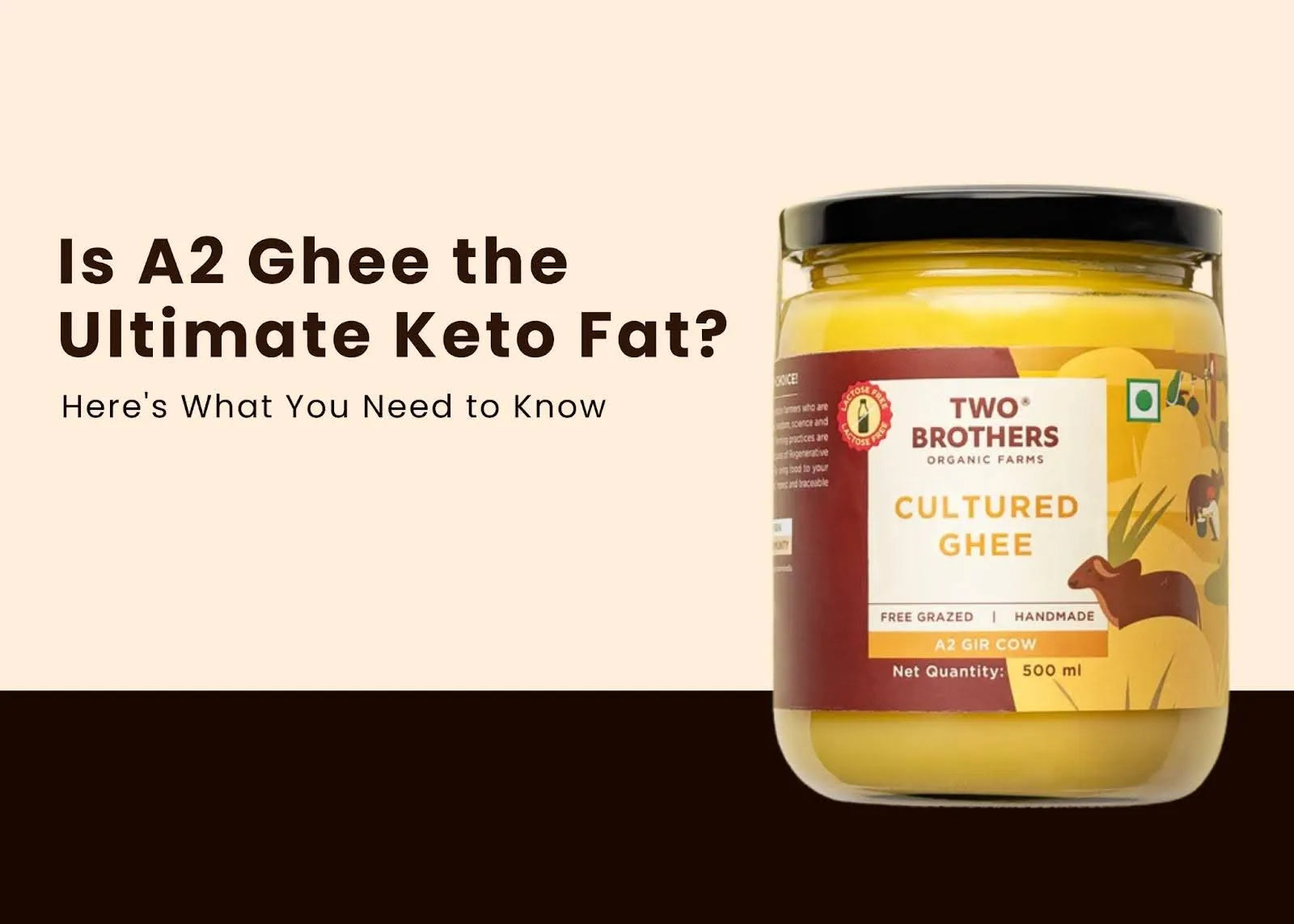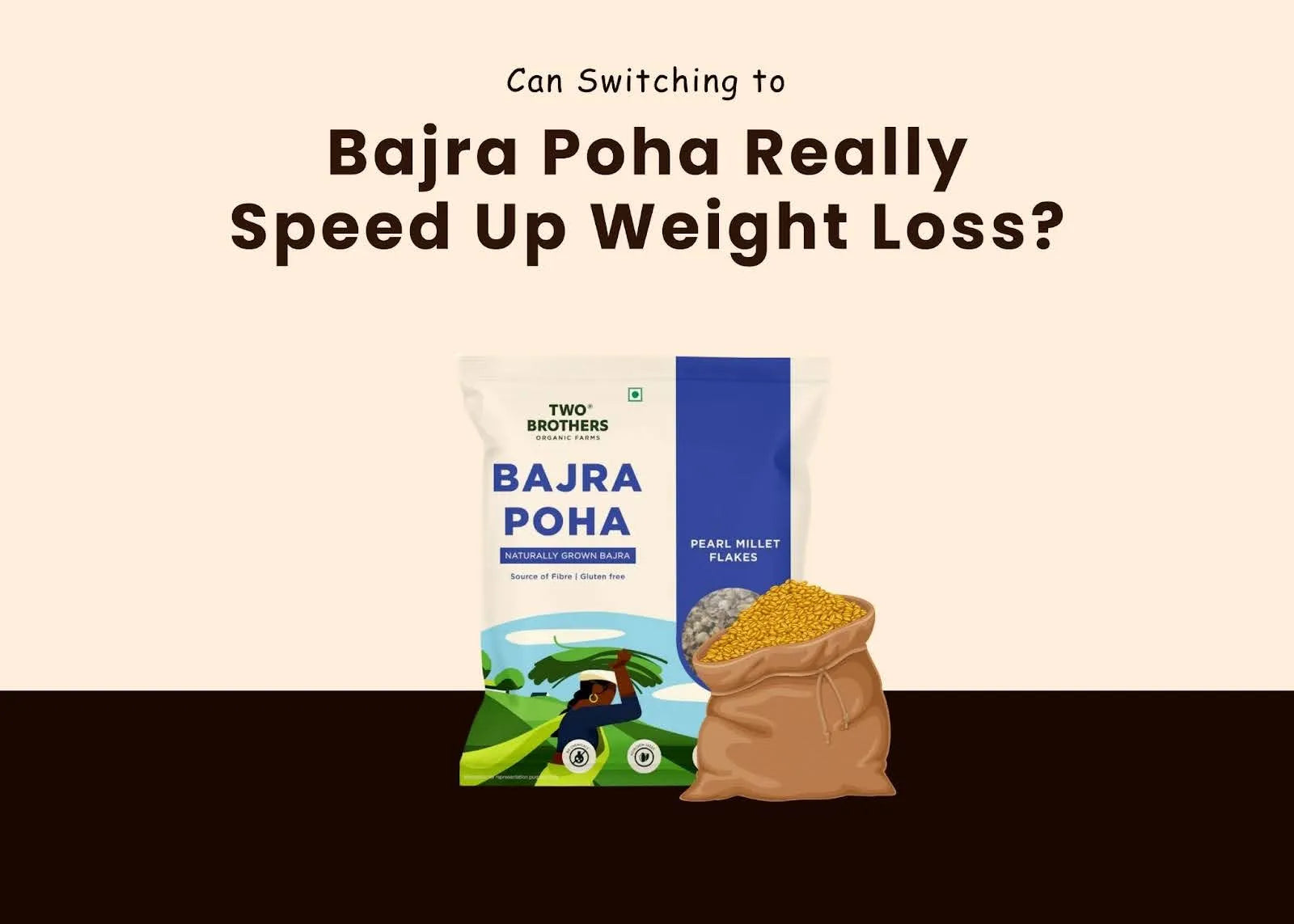Introduction
Over the years, ghee has earned both praise and criticism—hailed as a health elixir in Ayurveda yet vilified for its saturated fat content in modern diet advice. So where does the truth lie? Is ghee healthy or harmful for the heart? This in-depth article explores the science behind cow ghee benefits, particularly for cardiovascular health, and helps you navigate whether this golden fat deserves a place in your kitchen.
What Is Ghee and Why the Controversy?
Cow ghee is a type of clarified butter made by simmering unsalted butter until milk solids separate, leaving a fragrant, golden, almost lactose-free fat. Lovers of traditional Indian cooking revere it for its nutty taste, long shelf life, and high smoke point.
However, because ghee is high in saturated fat—which dietary guidelines often recommend limiting due to its connection with LDL (“bad”) cholesterol and heart disease risk—it’s often misunderstood in modern nutrition discussions
But not all saturated fats are created equal, and new scientific insights are challenging conventional wisdom, especially when it comes to natural animal fats like ghee.
The Ayurvedic Perspective: Ghee as a Heart Tonic
According to Ayurveda, ghee is considered a supreme satvic food that balances all three doshas (Vata, Pitta, Kapha), supports digestion (agni), nourishes ojas (body essence), and strengthens vital tissues—including the heart and brain
It is even used as a rasayana (rejuvenative tonic), believed to reduce inflammation, support circulation, and promote mental clarity. Traditional practitioners have used ghee to deliver herbal extracts deep into tissues, including the heart, thanks to its carrier properties.
Read More- Benefits of Adding Cow Ghee to Your Morning Routine
What the Science Says: Ghee and Heart Health
1. Blood Lipid Studies: LDL, HDL, and Triglycerides
Emerging research suggests ghee’s impact on cholesterol may be more complex than once thought. In several studies, moderate ghee intake did not increase LDL cholesterol in healthy individuals, and sometimes even reduced total cholesterol, LDL, and triglycerides in animal models
One preliminary clinical trial involving medicated ghee consumption reported decreases in total cholesterol (–8.3%), triglycerides (–26.6%), and cholesterol esters (–15.8%) Similarly, a rural Indian population showed a lower prevalence of coronary artery disease among regular ghee consumers.
However, outcomes can vary depending on the amount consumed and individual genetic predispositions.
2. Raising HDL “Good” Cholesterol
Multiple studies, including comprehensive reviews, indicate ghee may help increase HDL, a beneficial form of cholesterol that removes LDL from the bloodstream
HDL is considered protective because it transports excess LDL to the liver for elimination, a key factor in reducing heart disease risk.
3. Anti-Inflammatory and Antioxidant Effects
Ghee contains anti-inflammatory fats like butyric acid and conjugated linoleic acid (CLA), which may reduce arterial inflammation and encourage favorable lipid metabolism. It also supplies vitamins A, D, E, and K—fat-soluble antioxidants that protect LDL from oxidation, a trigger of plaque formation in arteries.
4. Gut-Heart Connection
Butterfat in ghee supports a healthy gut lining and microbiome. Since gut inflammation is linked to cardiovascular disease, the ability of ghee to support gut integrity may indirectly benefit heart health.

Read More- Cow Ghee in Coffee? Why This Ayurveda Hack Is Going Viral?
Balancing Benefits with Responsible Use
Yes, ghee has heart-supportive properties, but moderation is essential. The American Heart Association suggests keeping saturated fat intake to 5–6% of daily calories. Since one tablespoon of ghee contains around 14 grams of saturated fat and 256 mg of cholesterol, it’s easy to exceed recommended limits if used excessively.
For optimal results:
-
Limit intake to 1–2 teaspoons per day.
-
Integrate it into a diet high in fruits, vegetables, whole grains, pulses, and lean proteins.
-
Avoid pairing it with other saturated fats like fatty meats or processed cheese.
Choosing High-Quality Ghee: The A2 Advantage
Ghee’s source and preparation greatly influence its nutritional profile. Commercial versions can contain trans fats, oxidized cholesterol, colors, chemicals, and low-quality ingredients Instead, consider:
Two Brothers Organic Farms A2 Desi Cow Ghee
This handcrafted ghee is made using the Bilona method from grass‑fed, A2 cow’s milk, preserving natural fat-soluble vitamins, CLA, and butyric acid. It’s free of additives, made in small batches for freshness, and ice-tested for purity.
When you buy cow ghee online or in-store, always look for:
-
A2 milk source (easier digestion, richer fatty acid profiles).
-
Grass-fed, organic, and traditionally prepared ghee.
-
Transparent sourcing and no adulteration.
FAQs
Q: Is ghee good for cholesterol?
Yes, in moderation. Studies show it may lower LDL and triglycerides while raising beneficial HDL and reducing inflammation
Q: Is ghee healthy for the heart?
Controlled intake of high-quality cow ghee can support heart health by improving lipid profiles and promoting better gut and tissue health.
Q: How much ghee can I safely eat?
1–2 teaspoons per day, within a balanced diet, is generally safe for adults. Those with heart conditions should consult a healthcare provider.
Q: What's the best cow ghee to buy?
Opt for grass-fed A2 cow ghee made using traditional methods—like the Two Brothers A2 Desi Cow Ghee.
Q: How does ghee compare to butter or oils?
Ghee is more stable at high heat, free of dairy solids, and typically richer in healthy fats and antioxidants compared to butter. Unlike polyunsaturated vegetable oils, it resists oxidation.
Conclusion
Is cow ghee good for your heart? Absolutely, when used wisely. Far from being a dietary villain, traditional cow ghee offers a rich source of nourishing fats, antioxidants, and anti-inflammatory compounds shown to support cholesterol balance, gut health, and overall cardiovascular wellness.
To ensure you’re getting the best benefits, select a pure, grass-fed A2 cow ghee made using time-honoured methods. Two Brothers Organic Farms A2 Desi Cow Ghee stands out as a premium choice for those looking to nourish their bodies with integrity, taste, and science-backed tradition.









